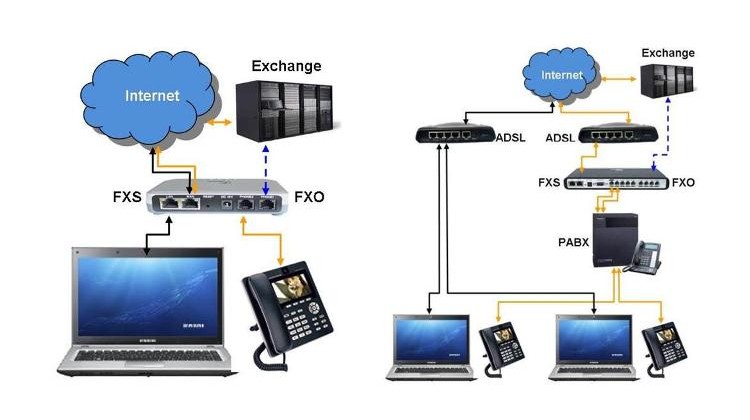
VoIP is the technology that converts your voice into a digital signal, allowing you to make a call directly from a computer, a VoIP phone, or other data-driven devices. Simply put, it’s phone service delivered over the internet. You may also hear it referred to as IP telephony, internet telephony, broadband telephony, or broadband phone service.
- With VoIP, analog voice calls are converted into packets of data. The packets travel like any other type of data, such as e-mail, over the public Internet and/or any private Internet Protocol (IP) network.
- Using a VoIP service, you can call landlines or cell phones. You can also call computer-to-computer, with both parties speaking into a computer microphone and listening through computer speakers or headsets.
- When evaluating, it’s worth noting that you can make or receive calls using landline telephones. All you need is an analog telephone adapter connected to your network. Also, to ensure the best voice quality and security, consider using your VoIP or other communications system on a private IP network.
How Does VoIP work?
VoIP technology enables traditional telephony services to operate over computer networks using packet-switched protocols. Packet-switched VoIP puts voice signals into packets, similar to an electronic envelope. VoIP packets can be transmitted over any VoIP-compatible network, such as a local area network (LAN).
Because VoIP uses packets, much more information can be carried over the network to support and enhance your communication needs. In addition to traditional voice services, VoIP gives you access to advanced applications that can potentially help your staff be more agile and productive. VoIP solutions aimed at businesses have evolved into unified communications services that treat all communications—phone calls, faxes, voice mail, email, web conferences, and more—as discrete units that can all be delivered via any means and to any handset, including cell phones.
How VoIP Works for Your Business
How VoIP works for your business is simple: By adding voice to a data network, you’ll reduce costs, improve productivity, and enhance collaboration.
- You’ll save money by having one network to manage instead of two. You can easily add, move, or change phone extensions and locations, which saves money and gives you more flexibility.
- Your workforce can use your communications system from home or on the road. Also, wireless IP phones connect users to your communications system and data resources, such as customer information, while they’re in the warehouse, on the sales floor, or anywhere they can access your data network wirelessly.
- Unified communications solutions for small businesses go beyond basic VoIP capabilities in enhancing collaboration. With a unified communications solution, workers can easily collaborate through voice, video chat, Web conference, and instant messaging. Employees can collaborate using each technology individually or all of them simultaneously, and from a single, easy-to-use interface.
The Bottom Line
Switching to VoIP might also help you save money on communications services. Long-distance and international calls are generally free with VoIP service. The only charge is for your internet access. Implementing VoIP doesn’t mean that all your employees have to use IP-enabled phones. The best VoIP providers implement IP telephony in a manner that protects your investment in existing telephone equipment, even if you have analog telephone stations.
As one of the leading Internet Service Providers with industry-best leased lines for dedicated business internet in India, Spectra has all your internet-related queries covered!






